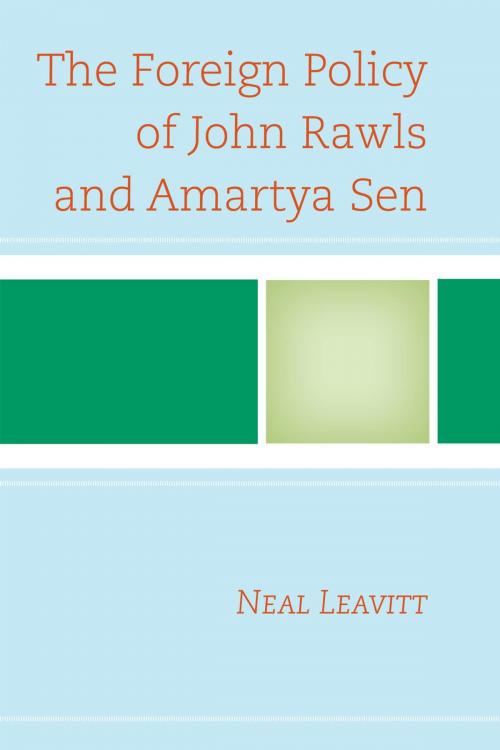The Foreign Policy of John Rawls and Amartya Sen
Nonfiction, Religion & Spirituality, Philosophy, Political, Social & Cultural Studies, Political Science, International, International Relations, Politics, History & Theory| Author: | Neal Leavitt | ISBN: | 9780739181775 |
| Publisher: | Lexington Books | Publication: | September 25, 2013 |
| Imprint: | Lexington Books | Language: | English |
| Author: | Neal Leavitt |
| ISBN: | 9780739181775 |
| Publisher: | Lexington Books |
| Publication: | September 25, 2013 |
| Imprint: | Lexington Books |
| Language: | English |
The foreign policy writings of John Rawls and Amartya Sen provide insight and clarity into some of the most difficult problems confronting humanity. What is the most effective strategy of national defense? Does an effective strategy of national defense involve the possession of nuclear weapons? Why must the right to vote—and the right to health care and the right to an education and the right to employment—center the foreign policy of a democracy? These are questions Rawls and Sen raise and answer in their writings.
This book describes the foreign policy of Rawls and Sen while building up towards a policy recommendation. Human rights protect civilians from heads of state and their armies—and the foreign policy of a democracy must promote human rights. But the nature of this recommendation is very specific. By redirecting some military spending to development goals, the core needs of more civilians can be better met while simultaneously advancing human security.
http://www.bu.edu/today/2013/pov-nuclear-armament-is-a-lose-lose/
http://www.bu.edu/today/2014/pov-to-stop-bad-guys-ratify-the-united-nations-arms-trade-treaty/
The foreign policy writings of John Rawls and Amartya Sen provide insight and clarity into some of the most difficult problems confronting humanity. What is the most effective strategy of national defense? Does an effective strategy of national defense involve the possession of nuclear weapons? Why must the right to vote—and the right to health care and the right to an education and the right to employment—center the foreign policy of a democracy? These are questions Rawls and Sen raise and answer in their writings.
This book describes the foreign policy of Rawls and Sen while building up towards a policy recommendation. Human rights protect civilians from heads of state and their armies—and the foreign policy of a democracy must promote human rights. But the nature of this recommendation is very specific. By redirecting some military spending to development goals, the core needs of more civilians can be better met while simultaneously advancing human security.
http://www.bu.edu/today/2013/pov-nuclear-armament-is-a-lose-lose/
http://www.bu.edu/today/2014/pov-to-stop-bad-guys-ratify-the-united-nations-arms-trade-treaty/















